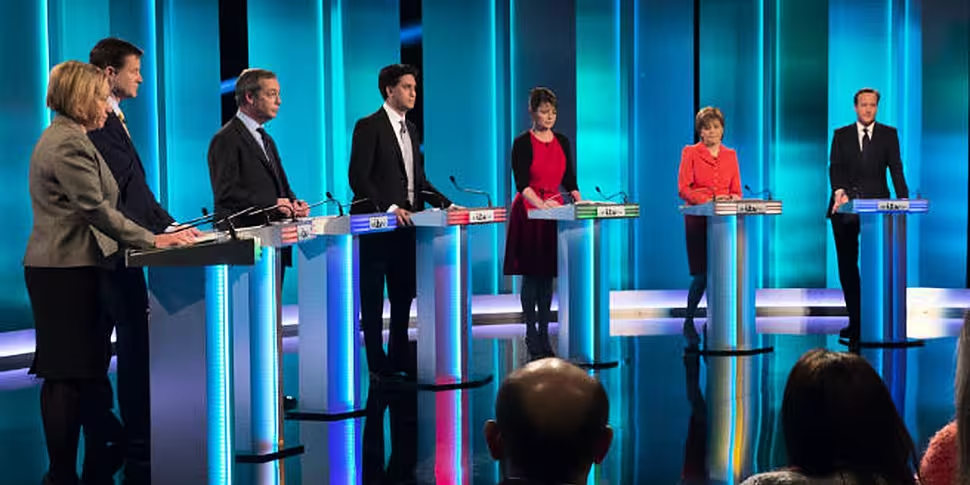The 2008 US Presidential Election was one of, if not the first social media election. There were 1.8 million tweets sent on that particular election day. Things have changed dramatically since then, with around 500 million tweets sent out per day.

Obama’s appearance at the 2012 Democratic National Convention caused four million tweets during his 40 minute speech alone. Twitter reported that the election was the most tweeted-about event in U.S. political history. There were more than 31 million tweets sent, with a peak of 327,452 tweets per minute shortly after the television networks called the race for Obama.
Data produced by Open-Site showed that back in 2012 4 out of 10 people would use social media to help them decide who to vote for on election day.
A study published in early 2013 entitled “The 2012 Social Media Election survey: Key Lessons to Inform Decision Making and Business” set out with the following objectives:
-
Understand how closely the public watched the elections
-
Assess the value placed on various sources of information about the candidates and issues in the election
-
How the public was using social media to learn about and engage in discussions about the elections
-
How people shared their political opinions on social media
Some of the top line results from that study include:
-
29% of American’s said that social media was moderately to extremely influential in their opinions of the candidates and the issues
-
63% of Americans said the quality of information about the candidates and issues on social media was was the same or better than traditional media
Similar studies are currently on-going in the US to ascertain the influence of social media in the 2016 Presidential Election.
GE2015
An Ipsos Mori poll, carried out with King’s College London looked at the impact of social media on the 2015 General Election.
Some 34% percent of those aged 18-24 said that reading something on social media was likely to influence their vote, second only to TV debates.
The study found that TV debates was the most likely source of information set to influence the vote of the population as a whole, followed by newspapers, election broadcasts and then social media.
Some 71% of the population of the United Kingdom said they believe social media provides a platform and a voice to people who wouldn’t normally take part in political debates, but 50% believe that social media makes political debate more superficial than it used to be.
Social media helped break down the barriers between voters and politicians.
So, what can we take from these stats?
Social media has an impact on what the public thinks of the politicians and their parties. It is influential, particularly with young people, but a lot of people acknowledge that it’s not the be-all and end-all.
Last Thursday’s seven leader debate on ITV was important in the lead up to polling day. Journalists and political nerds live tweeted every element of the two hour event. While there were funny quips about the set-up and the little jibes each of the leaders took at one and another, social media managed to capture the essence of the debate. Nicola Sturgeon’s strong performance caught the attention of many while a number of viewers questioned Cameron’s inability to move on from the actions of the last Labour government.
More than 1.5 million tweets were sent relating to the leaders debate, that’s an average of 8,657 tweet per minute. Interestingly, Labour were the most discussed party, followed by SNP and then UKIP.
There were two very noticeable spikes in the Twitter conversation based on the information we have on “tweets per minute”. The first of these came when Nigel Farage stated that 60% of HIV sufferers in the UK are not British Nationals.
As an HIV specialist doctor I condemn @Nigel_Farage for using his platform to stigmatise people living with HIV #disgraceful #leadersdebate
— Shema Tariq (@savoy__truffle) April 2, 2015
The second spike came when a woman in the audience stood up and heckled Prime Minister David Cameron.
While no election campaign can be fully run and won on social media, it’s clear to see that it does impact how representatives are portrayed and received by the general public. A social media strategy is a key part of any main political party’s planning process.
Our political parties are, of course, in on the digital action too. Who could forget Fine Gael’s glorious attempt to get in on the e-card business back in 2011?

And the Taoiseach has signed up to Instagram and Vine
(My first) @Vine: IPO on Irish Stock Exchange today - sending up a positive flare from Ireland https://t.co/J0KHu3SxuQ
— Enda Kenny (@EndaKennyTD) March 25, 2015
This is, undoubtedly, in preparation for our upcoming general election. While social media can be a cruel thing at times, it can bring the politicians closer to their voters than any other medium.
The killer question is, will they get it right?









